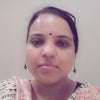How this healthcare startup is healing rural West Bengal The startup is working relentlessly at detecting and addressing anemia in women and malnourishment in children.
Opinions expressed by Entrepreneur contributors are their own.
You're reading Entrepreneur India, an international franchise of Entrepreneur Media.

It's strange how what we take for granted might be but a daily challenge for someone else. Take access to primary healthcare and diagnosis, for instance. Some of us think nothing of going to a clinic for a recurring cold or backache. Ironically, a larger part of India struggles with this.
That the situation is particularly bad in rural India is no surprise. Says Manish Saraf, Founder, Ujjeewan Healthcare, "It is not just about accessibility. Despite free medical service, it isn't really free since villagers need to travel, and although some medicines are free, others still need to be bought."
Saraf formed Ujjeewan in West Bengal in January 2014,to address primary healthcare woes in rural parts of the state, where there is hardly any reach of medical facility/ services. A social impact business, Ujjeewan helps with last-mile medical services and care through telemedicine, fair price generic medicines, basic preventive pathological tests, women's healthcare services, education and monitoring through women's self-help groups (SHGs).
A pharmacist by profession, Saraf understood the importance of someone disbursing medicines to the customer –he should be able to explain not only about dosage, but also about the prescribed drugs and their function. "But that just doesn't happen. Pharmacists merely sell," he rues.
So Saraf started a medicine home delivery service from his hometown, Raniganj, West Bengal, where he also gave free consultation on prescriptions. "Our core service was free and money came from value-added service –home delivery of medicines. You see, no one wants to pay for information," he says.
The startup failed to pickup, however, and a disillusioned Saraf travelled across India to take a break – if attending conferences on medical intervention and meeting people in the field of medicine can be called a break, that is.
"During this travel, I also came across a book that played a very important role in my life – "The world is flat" by Thomas L Friedman," he says, adding that it helped him understand how technology can play a role in making things available across any industry. A visit to the big Meenakshi Mission Hospital and Research Centre in Madurai, and an understanding of telemedicine, sealed the deal.
The pilot project for Ujjeewan kicked off in 2012in rural Raniganj, and a telemedicine centre was set up, with consultation from the hospital in Madurai. "We realized the importance of reliable information at a crucial time, even if you don't give medicine," he says and reveals how they soon had a doctor, too, and together reached out to villages deep into the interiors. A mobile clinic followed.
"The local panchayat people saw us and our commitment and warmed up to us. After spending two years at the village level, we approached them with the Ujjeewan model," says Saraf. To address the affordability issue, Saraf put his faith in generic drugs, which cost a fraction of brand-name drugs. So now there is a telemedicine facility, a pharmacy and a blood-collection centre at the micro level.
Ujjeewan has seen huge success in the past year, and people in the area are accepting it. The startup is working relentlessly at detecting and addressing anemia in women and malnourishment in children – two big problems in the region. "Women who come to us for blood test and iron supplements always pay, without fail," shared the 33-year-old, visibly proud of how the villagers aren't looking for freebies, only good and affordable medical care.
The centre at Raniganj sometimes gets 350-400 patients in just three hours, and on an average, clears 100 prescriptions a day. Currently, there are two operational centres, and Saraf's calculations say the bootstrapped company will have adequate cash flow after just five more centres, with two due to start this April.
What started with personal savings and grant money of Rs 1.5 lakh from Villgrow Innovations Foundation, now has the help of Kolkata-based TotalStart Entrepreneurship Ecosystem Developers as well. "I still have my low days, when I question what I am doing," says Saraf candidly, adding, "But then I also ask myself: if I don't do something for my people, who will?"
Spoken like a true entrepreneur, we say.












